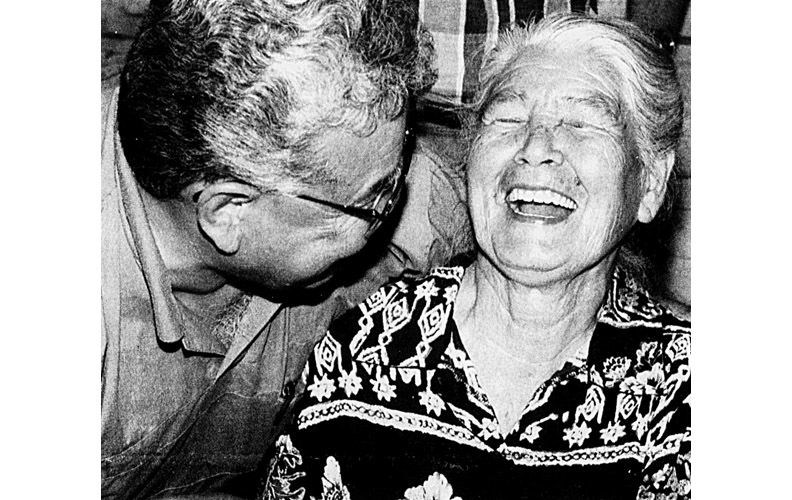Redemption, both the word and its meaning, are deeply out of fashion. So are its cousins, atonement and absolution.
Forgiveness remains a popular word but it describes the other end of the equation, the person who was sinned against and pardons someone else for a crime large or small against them.
Redemption, atonement and absolution, however, belong to the sinner. The burden the offender takes on is to seek and earn redemption for offences through continuous acts of goodness and service to others. It is a difficult road because the sinner must accept that forgiveness will never come but perhaps, with enough time and effort, atonement can be earned.
Today, we redeem coupons and try to redeem our good name if it has been smeared. Redemption and its fellow cousins also focus on balancing the scales, on making things right through transactions, on settling wrongful debts.
Justa Monk lived a life of redemption. At the age of 25, he killed his brother with a hunting knife. A residential school survivor, Monk fled the Lejac school near Fraser Lake when a tuberculosis outbreak hit the students while he was in Grade 7. The dreaded disease wasn't the only thing hitting students. Monk and many others left Lejac scarred by the constant emotional and physical abuse. They returned to their communities angry and violent, lashing out at others while trying to kill their inner pain with drugs and alcohol.
Stabbing his brother to death was the lowest point of Monk's life and it brought him to a crossroads.
He could have easily stayed on the path he was on, spending much of his life in jail and likely dying in another violent confrontation, never escaping the horrors of Lejac unleashed on his childhood, never making any effort to atone for what he had done to his brother.
Instead, he chose the road to redemption.
He took responsibility for what he had done. He swore off booze. He sought the support of his family and the elders in the Tl'azt'en Nation near Fort St. James. He threw himself at the mercy of a jury of his peers.
And in 1967, an all-male jury reduced the murder charge, found Monk guilty of manslaughter but recommended maximum clemency to the judge, who in turn sentenced Monk to two years less a day.
Monk's redemption was to not only change himself but to change the world around him for the better. He devoted the next 50 years of his life, until his death this week at age 75, to helping others, to speaking out against injustice, to leading his people in both his personal and professional life.
He was the first chief of the Carrier Sekani Tribal Council, from 1981 to 1983, and he served a second time in that role from 1990 to 1994.
Among the non-Indigenous population in B.C., Monk rose to prominence during the 1990s by leading the charge against Alcan's proposed Kemano Completion Project, citing the permanent harm it would do to the Nechako River and other waterways in central B.C. In 1994, Bridget Moran devoted an entire book to Monk's journey from convicted murderer to respected and influential First Nations leader.
Monk never stopped working, continuing to serve in various leadership roles. He stepped down as Tl'azt'en Nation chief last summer but still sat on various advisory committees.
His legacy is the inspiration and mentorship he provided to a new generation of chiefs stepping up to lead. He taught them, with his words and his example, to be kind and fierce, loyal and brave, tough and generous.
Those seeking personal redemption may never forgive themselves but their journey demands being able to forgive others. As a result, Monk willingly accepted Prime Minister Stephen Harper's formal apology in 2008 to residential school survivors.
"The formal apology is a time to bury old grudges and look to the future," he said. "We need to teach our young people. We need to tell them about wrong and right and what happened so they don't forget."
Forgive but not forget.
Learn from the past to make a better future.
Valuable lessons too often ignored or forgotten.
Ten years ago, Monk would have been deeply aware that Harper's apology was simply a first step, by the federal government in particular and Canadian society in general, in a long and difficult process towards reconciling centuries of pain and injustice inflicted upon First Nations peoples. He believed in reconciliation because if a man with just a Grade 7 education could take responsibility for his crimes, could change his ways and could devote himself to the betterment of others, then surely Canada and Canadians could do the same for Indigenous citizens.
Out of childhood abuse and a horrible crime, Monk built a meaningful life that changed this region and its people for the better. His strength and resilience should inspire those who still fight for change and should offer a beacon of hope, both for those who have stopped believing in redemption and for those in the greatest need of it.
-- Editor-in-chief Neil Godbout



